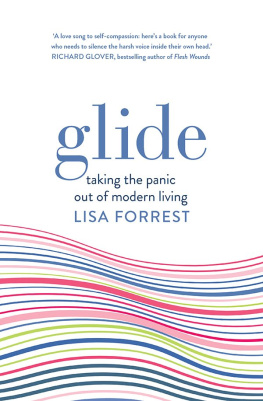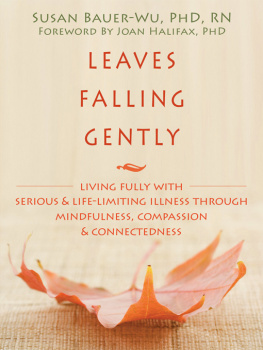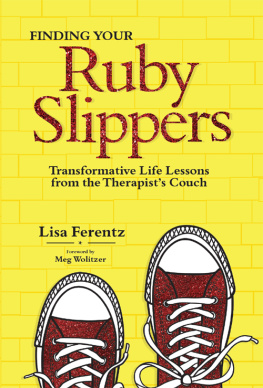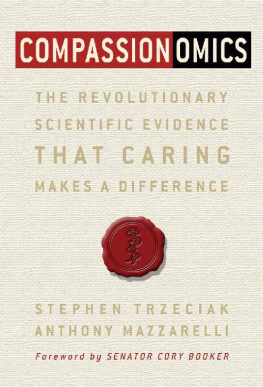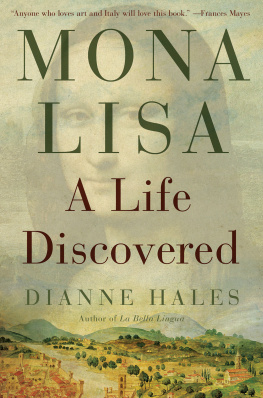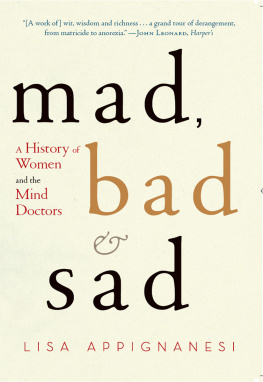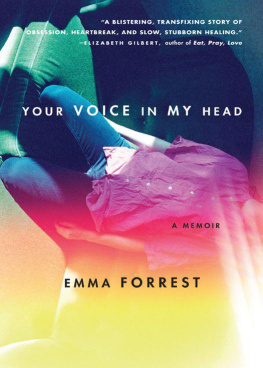
Excerpt from Jon Kabat-Zinn, Adventures in Mindfulness (2012) used with permission from Nightingale-Conant and the publisher, Sounds True, Inc. Excerpt from Joseph Campbell, The Hero with a Thousand Faces (California: New World Library, 2008), used with permission from the publisher.
First published in 2020
Copyright Lisa Forrest 2020
All rights reserved. No part of this book may be reproduced or transmitted in any form or by any means, electronic or mechanical, including photocopying, recording or by any information storage and retrieval system, without prior permission in writing from the publisher. The Australian Copyright Act 1968 (the Act) allows a maximum of one chapter or 10 per cent of this book, whichever is the greater, to be photocopied by any educational institution for its educational purposes provided that the educational institution (or body that administers it) has given a remuneration notice to the Copyright Agency (Australia) under the Act.
Allen & Unwin
83 Alexander Street
Crows Nest NSW 2065
Australia
Phone:(61 2) 8425 0100
Email:
Web:www.allenandunwin.com

ISBN 978 1 76052 789 1
eISBN 978 1 76087 385 1
Set by Bookhouse, Sydney
Cover Design: Lisa White
Cover image: Shutterstock
For
The Dee Why Ladies
Ahead of their time
Leading with compassion
And for
Dex
A most forgiving teacher
May there be peace in your inner and outer worlds
Lisa Forrest became a household name when she represented her country as a teenagershe captained the Australian womens swimming team to the 1980 Moscow Games and is a Commonwealth Games dual gold medallist. Since her swimming days shes been a broadcaster on both TV and radio, acted on TV and on stage and authored six books, including three novels for teenagers, as well as Boycott: The story behind Australias controversial involvement in the 1980 Moscow Olympics. Lisa is also a motivational speaker, mental skills coach and teacher of mindfulness-based stress reduction. Her business Evermind (www.evermind.com.au) is dedicated to fostering innate courage, curiosity, compassion and joy, qualities she believes support our ability to glide through the challenges of the 21st century. Lisa lives in Sydney with her husband and son.
Wise ones say that pain is the greatest motivator for change. But I reckon its pains relationship to reward that is the transformer. I would not be writing this book if my last book had not caused me (and my lovely husband and son) more pain than it was worth.
Inheritancea young adult fantasy novel set in a circuswasnt a complete flop, but it didnt sell well. If it had, I might have told myself (yet again) to suck it up. I might have told myself (yet again) that the mental torture I put myself through was the price I had to pay for possessing a driven mind: the same mind that got me to the Olympic Games by the time I was sixteen, and had me ticking off almost everything on my bucket list by the time I was forty. In other words, I would have said to myself: Stop your whingeing.
Except I was exhausted (yet again) and Id had enough. Some thirty years before the book was published, I won gold medals at the 1982 Commonwealth Games in Brisbane, but I nearly didnt make it. Id struggled with motivation due to what I called trouble with my thinking, self-diagnosed with the aid of Rocky III (a story that Ill get to). Sports psychology back then consisted of a few mottos my coach wrote across the training blackboard, like my personal favourite: When the going gets tough, the tough get going. Oh, how I loved that motto! The thrill of the challenge. The curiosity, the determination, the anticipation that stirred inside me when my coach wrote a testing swim set on the blackboard were enough to give me goosebumps. It might sound weird to you, but I loved training hard and I loved the rewards: the praise from my coach, of course, but, even more, the competitive advantage.
I was introduced to When the going gets tough when I was thirteen. What followed was one of the most exciting years of my young life. Every time I raced, I slashed seconds off my best timeand I raced regularly. A year later, when Id only just turned fourteen, I was selected to swim for Australia at the 1978 Commonwealth Games.
Two weeks into the four-week, pre-Games training camp, I won the female Trainer of the Week award (one banana and one plum).
Three weeks into that same camp I was in the Honolulu Childrens Hospital after three episodes in the pool in which I was seized by a scorching pain that streaked up my neck and exploded in my head with such force that I was brought to a complete standstill.
It was clear that I needed a new motto; one that told me when Id been tough enough. But I never found one. Over the years, When the going gets tough became a whip with which to beat myself, and the impossible quest to be tough enough gave rise to a goading, impossible-to-please voice that I eventually dubbed Ms Never Enough. No matter how hard I tried, no matter what I achieved, it was never enough for her. She pushed me to illness, injury and burnout while stealing the joy from every experience. When Inheritance was published I finally had to admit that her style of motivation-through-mental-torture was causing me to fail more often than succeed.
So, in 2013, I decided to take a sabbatical from setting goals and achieving to find some way to fix this trouble with my thinking. Aware that motivation these days is a bit more sophisticated than a few mottos on a blackboard, I signed up for a life-coaching course, reasoning that with a few updated techniques I could coach myself out of my funk.
At first, I thought Id made a mistake. Life-coaching is a very practical processbut its a goal-setting practice, which (obviously) Id never had trouble with. What I wanted to learn was how to be satisfied with the number of goals Id kicked rather than constantly feeling that I needed to kick more. Still, I stuck with it, determined to keep an open mind. It was a requirement of the course that I coach others, so I made myself useful helping my clients get unstuck.
This proved enlightening. I quickly learned that I wasnt alone. The debilitating Ms (or Mr) Never Enough is a toxic resident in minds throughout our society. I would learn that its called the language of scarcity and it activates the part of the brain that is driven to satisfy our basic needs: food, clothing, shelter. Most of us in the Western world have our basic needs met, yet do you know anyone who believes they have enoughenough time, money, love, respect, knowledge, willpower and so on? The notion of scarcity is the malady of the modern world, draining us all of generosity towards ourselves and others. It occurred to me that if I could find the source of my own Ms Never Enough I could use that knowledge to help others.
And then two seemingly unrelated events occurred that turned out to be the keys to my quest.
The first was an invitation from my coaching-course provider to a non-compulsory webinar on mindfulness-based stress reduction (MBSR). I was deeply sceptical when I started my first basic breath meditation, guided by Jon Kabat-Zinn, the creator of MBSR, but within minutes I knew Id found the practice Id been looking for since I first met my doubting Ms Never Enough as a teen.
The second moment of serendipity happened when I was talking with a woman whose teenagers first experience in sport was not unlike my ownbut with a different outcome. At a young age, her son, like me, had been teary and scared before the start of a race. But, unlike me, no one had been able to settle his tears and get him beyond the start line. When I replayed the conversation after our meeting, I found myself facing an uncomfortable truth:
Next page
